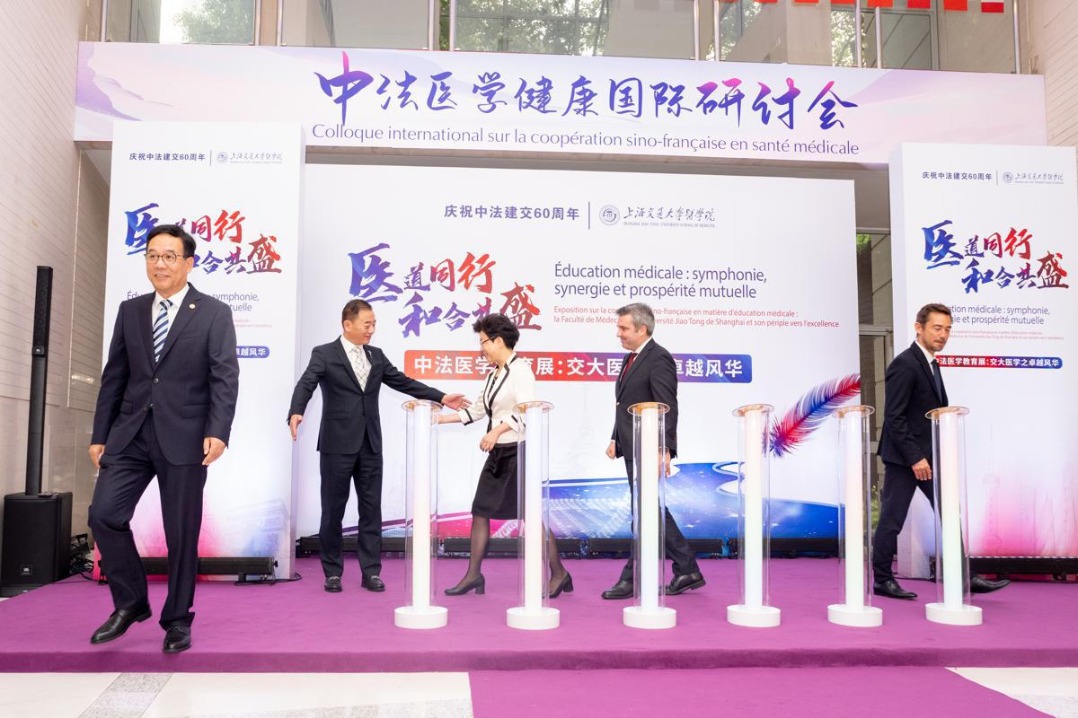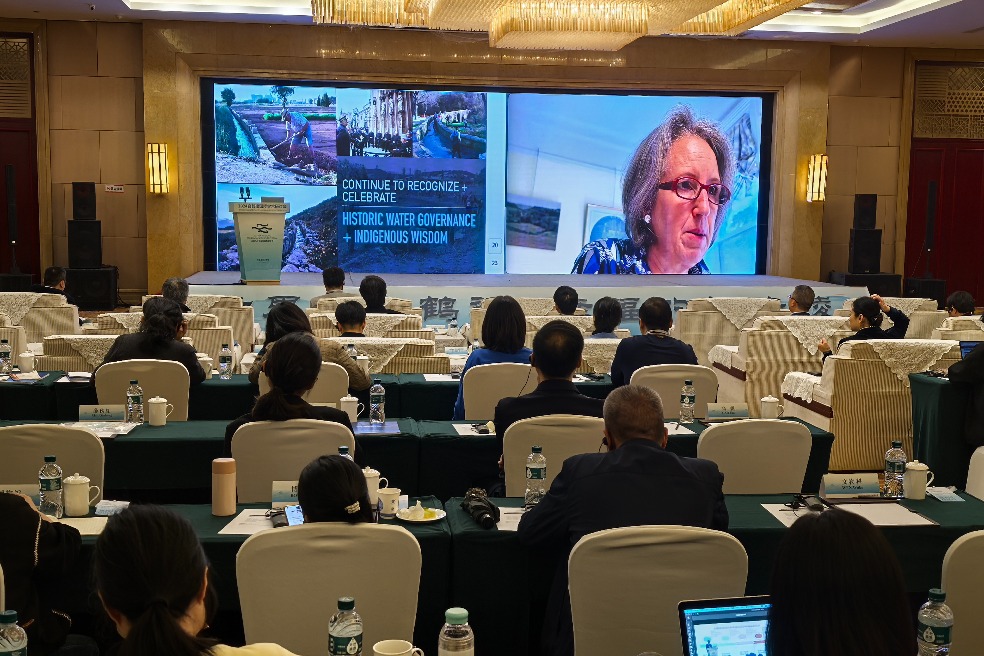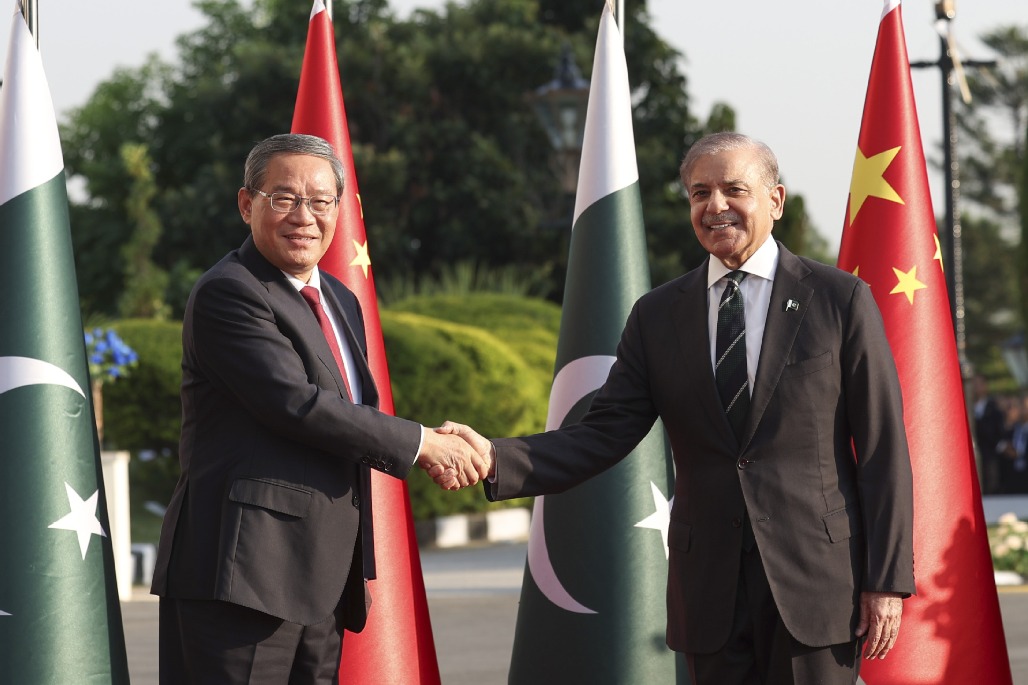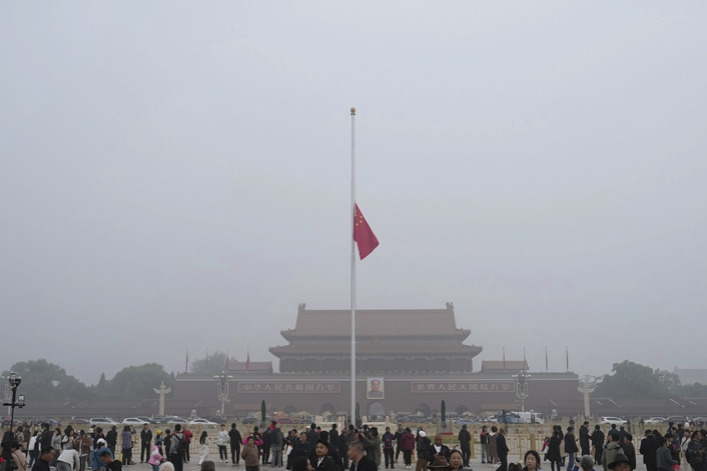Spotlight on role of public policy evaluation as conference begins

Officials from China and international organizations underscored on Monday the critical role of evaluation in addressing global governance challenges, calling for enhanced international cooperation to achieve the United Nations 2030 Agenda for Sustainable Development.
The path toward achieving the UN's Sustainable Development Goals has faced significant challenges, and all nations are seeking peace, stability and development more than ever, they said, adding that public policy evaluation has become a crucial tool for enhancing governance and ensuring the effectiveness of the policies.
The remarks were made at the opening ceremony of the 2024 National Evaluation Capacities Conference on Monday. The conference, held in China for the first time, was co-hosted by the China International Development Cooperation Agency, the United Nations Development Programme and the Global Evaluation Initiative from Sunday to Friday in Yanqing district, Beijing.
Achim Steiner, administrator of the UNDP, said that evaluation is integral to an ever-improving way of managing development.
Co-hosting the conference with China is a tremendous opportunity to connect the expertise of a global community with rapidly evolving experience and expertise in China, Steiner said.
"We hope that our collaboration with China and the CIDCA will actually enable us to help many countries rapidly develop systems that are both from China's point of view and our point of view, that are central to successful and efficient development," he said.
Xiao Jie, vice-chairman of the Standing Committee of the National People's Congress, China's top legislature, said at the opening ceremony that the nation is willing to continue working hand in hand with all parties under the framework of the Global Development Initiative, leveraging key functions of evaluation to provide strong support and effective guarantees for national and global development.
Xiao noted that China has been sharing its development experience with other countries, engaging in extensive exchanges and cooperation with developed nations and multilateral organizations like the UN. The country is also helping developing countries improve their governance through development cooperation projects and training workshops, he added.
China is willing to take a more active part in the UN-led review of global governance, listen more to the voices of the Global South, and actively respond to their aspirations and expectations, he said.
China would like to continue strengthening cooperation with developing countries in evaluation, he said, adding that he hopes that developed countries and international organizations, including financial institutions, will provide more financial and technical support to the developing countries.
Under the theme of "Responsive Evaluation: For Government, For Inclusion, For the Future", over 500 representatives from over 100 countries will engage in in-depth discussions on key topics such as building robust evaluation systems, inclusive evaluation frameworks and future-driven evaluation systems and methodologies.
Isabelle Mercier, director of the UNDP Independent Evaluation Office, said she believed that evaluation is not just a tool, but also an essential pillar of effective governance.
Noting governance is part of the core mandate of the UNDP, Mercier said that the organization plays a very important role in helping countries strengthen decision-making through evaluative evidence.
Responsive evaluations involve not only the leaders and policymakers, but also the implementer, the civil society and especially the people with the highest stake in the outcomes, she said.
Carmen Nonay, director of the Finance, Private Sector, Infrastructure and Sustainable Development Department at the Independent Evaluation Group of the World Bank, emphasized the need to harness new data, technology and methods that would improve the rigor, quality and the usefulness of evaluations.
"By using tools like artificial intelligence or just special analysis, we can answer complex questions with greater efficiency, and we can bring more precision and push evaluation practices into a new dimension in the future," she said.
- Spotlight on role of public policy evaluation as conference begins
- 72 nations to take part in World Buddhist Forum
- China announces plan for space science until 2050
- Former vice-governor given suspended death sentence
- Policy to boost cotton industry in Xinjiang
- Dignitaries laud revitalization strategy in Northeast China





































